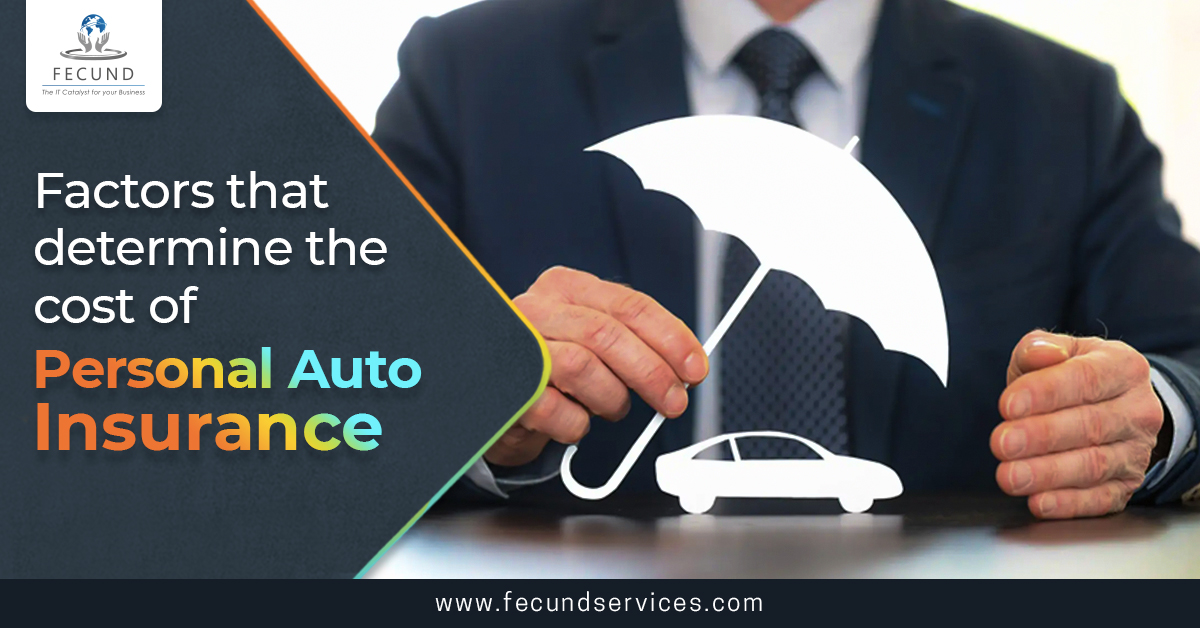 Some factors that affect personal auto insurance premium calculation may broadly be categorized as Driver/Insured attributes, Vehicle attributes, and the Risks covered, as below.
Some factors that affect personal auto insurance premium calculation may broadly be categorized as Driver/Insured attributes, Vehicle attributes, and the Risks covered, as below.
Driver/Insured Attributes
- Driving Record: A driver’s past performance is an indicator of their future performance. If a driver has had accidents or serious traffic violations in the past, they will likely pay more than those who have a clean driving record.
- Credit History: This is an indicator of the financial health of the insured. Data shows drivers with poor credit history file more claims than do drivers with better credit. This predicts the probability of filing a claim by an insured and the likely cost of such claims. Higher the probability higher the premium.
- Years of driving experience: The more experience a driver has behind the wheel, the less likely they are to make the mistakes that lead to violations and claims. The premium declines as the driving experience increases.
- Claims History: Claims history is any insurance claim the insured/driver has filed and/or any claim filed against them in the last certain years. The total number of claims, types of claims, and the total claim amount paid out to determine the current/future rates for the policy. Some insurers offer to forgive the oldest incidents based on certain other conditions on the policy.
- Age: The younger the driver, the higher the premium. The younger drivers below the age of 25 are presumed to be reckless drivers and can get into more accidents than do drivers in any other age group. The premiums may go up or down for other age groups as well.
- Gender: Statistically, women tend to get into fewer accidents, have fewer DUI incidents, and have fewer serious accidents than men. This often means rates for men are higher when they’re young, and rates for women are higher when they’re older.
- Marital Status: This factor has a minor effect on auto insurance rates. Historical data shows married drivers share driving duties and probably are more responsible. Although the difference between car insurance rates for married, divorced, single, and widowed drivers is minimal.
Vehicle Attributes
- Vehicle Type: The type of the vehicle such as Car, Van/Pickup, Antique, Motorcycle, etc determines how the vehicle is rated. The application of various factors would be different for each vehicle type.
- Vehicle Cost: Insurance rates on an expensive car will be higher than premiums for an average-priced car. If a vehicle costs more to replace, the insurance company will charge more.
- Vehicle Age: Insurance rates on a brand-new car will be more expensive than premiums for an old car.
- Vehicle Use: What purpose is the vehicle used for? Daily commute, Business, Pleasure, etc. determine the rates. The category that presents the higher exposure to risk demands higher premiums.
- Miles Driven: More time on the road, more exposure to the risks. Hence, the total number of miles driven in a year plays a role in the determination of premiums.
- Garaging Location: Car insurance is regulated at the state level and subject to each state’s regulations. Hence the rates/rules for the calculation of premiums may vary between different states. The other factors that affect the premium due to garaging location are urban and rural areas, areas prone to floods, wildfires, and crimes such as vandalism or theft.
- Safety features of the vehicle: Features such as Anti-theft, ABS, DRL, various alarms, disabling devices, etc reduce the cost of insurance.
Risks Covered
- Prior term coverage, lapses: Any lapse in the prior term adversely affects the premium in the current term.
- Current term coverages: The final premium of course depends on the coverages/risks selected in the current term.
Discounts, Taxes & Surcharges
In addition to the above, depending on certain factors the insurance companies may apply various discounts, taxes & surcharges, some of them are as below.
Discounts
- Multiline discount – Discount if the insured has other insurance policies from the same carrier
- Accident/Violation Free discount – Rewarded for a clean driving record
- Loyalty discount – Benefit of being a loyal customer of the carrier
- Discounts based on driver training etc – Trained/educated drivers get discounts
- Discounts based on vehicle’s safety features – Every safety feature of the vehicle contributes to the reduced premium.
Taxes & Surcharges
- Various taxes are levied as per the state tax laws.
- Accidents/Violations – Disciplined for being a risky driver.
- OEM Modifications – Surcharge for meddling with the original functionality of the vehicle.




Post a comment